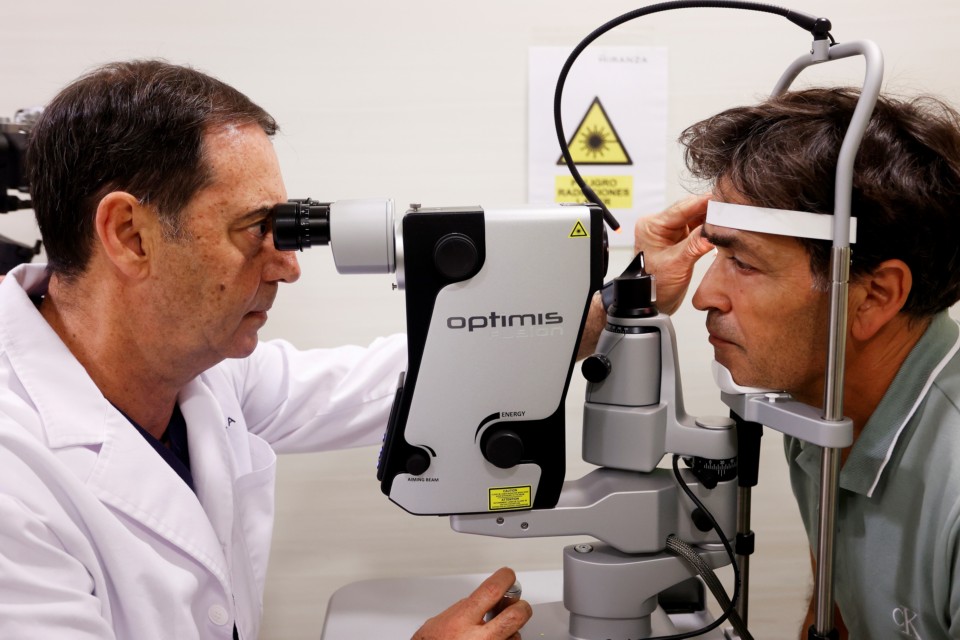
Visual Health: 6 Keys to Minimize the Effects of Ocular Allergies in Spring
Rhinitis and allergic conjunctivitis account for 6 out of 10 allergology
consultations, and this trend is on the rise.
With the arrival of spring, seasonal allergies begin to affect people worldwide. In Spain, approximately 15% of the general population and up to 30% of young people suffer from pollinosis (an allergic reaction to pollen), according to the Spanish Society of Allergology and Clinical Immunology (SEAIC). In addition to respiratory symptoms, allergies also impact eye health, causing itching, redness, tearing, and a gritty sensation in the eyes.
The data reflect a rising trend. Rhinitis and allergic conjunctivitis account for 6 out of 10 allergology consultations, and the World Health Organization (WHO) estimates that by 2050, half of the population could suffer from some form of allergy. Factors such as climate change and pollution are contributing to this increase, extending pollen seasons and intensifying its irritating effects on the eyes.

In this context, José Alberto Muiños, Medical Director at Miranza Clínica Muiños, has created a guide with six tips to help reduce the effects of ocular allergies during this time of year.
- Limit exposure during peak pollen times.It is advisable to check daily pollen levels through official sources and, as much as possible, avoid outdoor activities during peak concentration times, which typically occur early in the morning and at sunset. Indoors and in the car, keeping windows closed and using pollen filters in ventilation systems helps reduce exposure and alleviate symptoms. Additionally, ventilating during low-pollen hours and cleaning surfaces with a damp cloth minimizes the accumulation of allergenic particles.
- Avoid rubbing your eyes.Although the itching can be intense, rubbing your eyes may worsen inflammation and increase the risk of infections. Instead, it is advisable to use preservative-free artificial tears, which help flush out allergens and relieve eye dryness.
- Wear sunglasses to create a protective barrier.Sunglasses are designed to protect the eyes from UV radiation, but they can also help reduce pollen contact with the eye surface, minimizing irritation. Choosing wraparound models provides more comprehensive protection.
- Maintain proper eye hygiene.Poor hygiene of the face and eyelids can lead to the accumulation of allergens on the eyelids and eyelashes, worsening allergic conjunctivitis. Additionally, it can increase the risk of infections in the area, such as blepharitis (inflammation of the eyelids), intensifying discomfort.
- Avoid using contact lenses.If you wear contact lenses, it is advisable to reduce their use and opt for daily disposable lenses while maintaining strict hygiene to prevent allergen buildup. When the first symptoms of ocular allergy appear, it is best to avoid wearing contact lenses as much as possible, as they can be an irritant and may worsen eye dryness and other related discomforts.
- Consult a specialist.It is recommended to visit a specialist for a personalized diagnosis and treatment. There are antihistamine and anti-inflammatory eye drops, but consulting an ophthalmologist is essential to determine the best therapeutic option and prevent future complications.
“There are many ways to reduce the symptoms of ocular allergy, but it is important not to view it exclusively as a seasonal nuisance, as improper treatment can lead to chronic inflammation, secondary infections, or complications that affect eye health, such as keratitis (corneal injury). Furthermore, many people underestimate their symptoms without knowing whether they have allergic or bacterial conjunctivitis, which have different treatments and preventive measures. Therefore, it is always preferable to undergo an eye exam to ensure ocular health,” concludes Dr. Muiños.